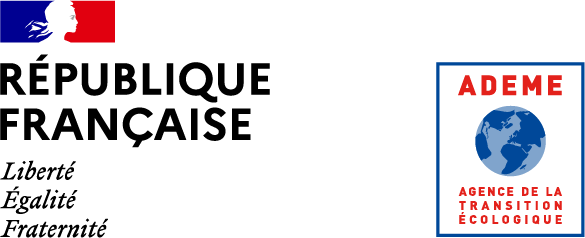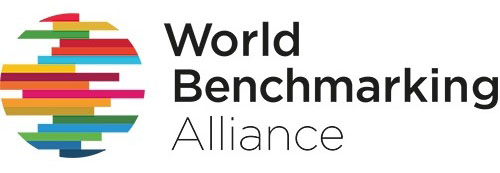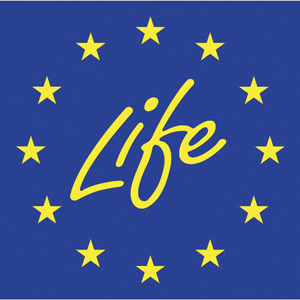The assessing low carbon transition initiative
- A forward looking approach to decarbonisation, beyond carbon accounting, to assess how the private sector’s climate actions contribute to “hold the increase in the global average temperature to well below 2°C above pre-industrial levels” (Paris Agreement art.2).
- A framework to assess the relevance and trustworthiness of private sector public GHG emissions mitigation commitments
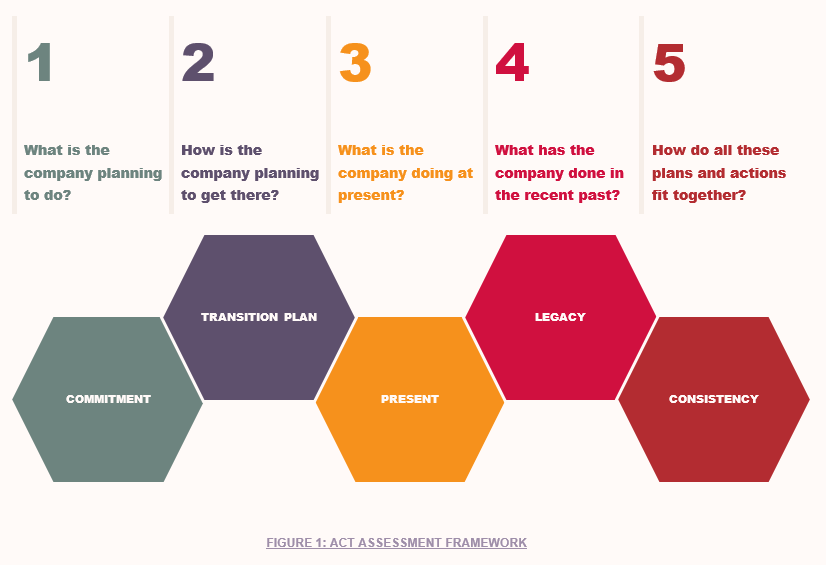
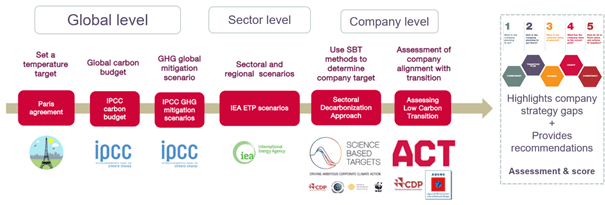 Any other relevant decarbonisation pathways can be used in the ACT tools for specific assessments. It assesses the gap between these low-carbon trajectories (or any trajectories that are of relevance from the assessment perspective) and the company’s trajectory. ACT assessments identify company’s strategy misalignments and provide recommendations, therefore closing the gap between corporate commitments and actions required to deliver a well-below 2°C economy.
Any other relevant decarbonisation pathways can be used in the ACT tools for specific assessments. It assesses the gap between these low-carbon trajectories (or any trajectories that are of relevance from the assessment perspective) and the company’s trajectory. ACT assessments identify company’s strategy misalignments and provide recommendations, therefore closing the gap between corporate commitments and actions required to deliver a well-below 2°C economy. - Identifying the key questions that need an answer to understand how companies contribute to the decarbonisation required to achieve the Paris mitigation goals
- Defining the process to develop sector specific methodologies to assess companies low carbon transition strategies against relevant sectoral decarbonisation pathways
- Developing and testing with companies three sectoral methodologies targeting three sectors with very different challenges when it comes to decarbonisation
- Testing methodologies with SMEs and mid cap companies using the French low carbon strategy (budget and pathways)
- Refreshing the draft methodologies (retail, electric utilities and automotive) and tools
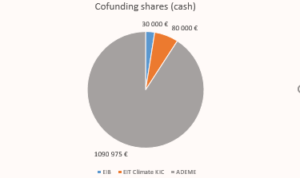 ADEME, CDP and Association Bilan Carbone made significant in-kind contributions as outlined in the chart below.
ADEME, CDP and Association Bilan Carbone made significant in-kind contributions as outlined in the chart below.
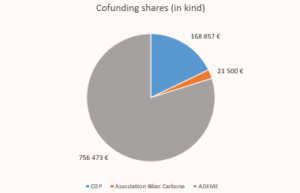
ACT methodologies principles
Forward-looking approach is applied to relevant indicators within the ACT methodologies, including targets but also in the assessment of the transition plan: material investment, R&D, sold product performance, engagement with clients, providers and policy makers, business model.
For example, the alignment of scope 1+2 emissions reduction targets indicator assess the gap between the company’s own emissions reduction target and its decarbonisation pathways. This is the commitment gap and it assesses the gap between what the company is planning to do and what it should do according to its benchmark pathway.
Another example with lock-in emissions indicators, as part of the sold products performance module, assesses the future GHG emissions which will occur due to the lifetime of products sold or current exploitation plants.
The coverage of emissions varies by sector. As the ACT Framework (page 8) explains: “the reporting boundaries of each ACT methodology for a given sector shall be determined by the sector’s most significant emissions sources, according to the principle of relevance. These significant emissions sources can be located all along the value chain of the organisation. This means that both direct and indirect (value chain) emissions shall be included where relevant.”
When they exist, ACT will rely on IEA scenarios acknowledging their bias and limitations but also recognising their advantages of being globally recognised. When they are no sectoral scenarios, ACT develops its own based on best practices and most recent available resources. ACT is scenario agnostic and considers all relevant existing scenarios.For example, as part of the ACT-DDP project in Brazil and Mexico, ACT will use national scenarios developed by the Deep Decarbonisation Pathways Initiative following a bottom-up approach.
Carbon offset via financing of certified carbon projects consists in the purchase of a “reduction unit” representing a quantity of tones of GHG avoided or removed by a project or program of activities. It is in addition to the reduction in/sequestration of the organization’s direct and indirect emissions. These projects can be projects for the reduction in, avoidance or sequestration of emissions. To ensure the robustness, reality, additional nature, transparency, permanence and unique character of the credits and verification by independent third parties of the emissions reduced or sequestered, the organization must routinely make use of certified offsetting projects, in the framework of standards guaranteeing these principles, whether national or international.
According to international standards such as ISO 14064-1, ISO 14067, European Product Environmental Footprint and Organization Environmental Footprint, WRI/WBCSD’s GHG Protocol, carbon offset shall not be included in GHG quantification study, but may be reported separately as “Additional Environmental Information”. Say it the other way around, carbon credit shall not be subtracted from the GHG inventory to minimize the amount of GHG emissions.
Therefore, carbon offset is excluded from the calculation of quantitative ACT indicators related to targets, material investments and sold product performance. Nevertheless, in the narrative scoring of the ACT assessment, these credits may be considered as additional information that helps to better understand the decarbonization strategy of a company.
- calculating avoided emissions is a tricky exercise relying on many parameters and external factors;
- perfect prediction of the impact(s) of these parameters and factors is impossible;
- there is no internationally recognized and standardized accounting methodology companies can refer to up-to-date;
- Bioenergy with carbon capture and storage (BECCS) with long-term storage
- Agriculture, forestry and land use changes
-
Rationale
ACT for companies
- Retail
- Electric Utility
- Automotive
- Construction
- Property development
- Real estate
- Cement
- Petrol & gas
- Transport
- Agriculture
- Agro-food
- Iron & steel
- Aluminium
- Chemicals
- Pulp and paper
- Glass
ACT initiative is also considering, following engagement with interested parties, developing a methodology for financial institutions and for ICT sectors. Contact us at info@actinitiative.org if you are interested.
- Identify climate transition risks and opportunities including “well-below 2°C aligned” business models
- Define an ambitious yet realistic low-carbon strategy
- Set relevant indicators and actions across company strategic operations
- Identify gaps to the company operational readiness to transition to a low-carbon world
- Improve the credibility of low-carbon strategy and commitment
- Engage with stakeholders including investors about the company
ACT methodologies include module #1 covering targets (assessing achievement of past targets, relevance in terms of scope and ambition in terms of timeline of futur targets), starting an ACT assessment with not targets would lead to a poor result in this module affecting the overall ACT performance score. If your company doesn’t have targets or road map to transition to a low carbon economy, ACT Step by Step could be more appropriate.
Yes absolutely as ACT will either help you with developing a company strategy and action plan to achieve this target (with ACT Step by Step) or assess if your company has the means (material investment, R&D, product performance, management, suppliers engagement, clients engagement, policy engagement and business model) to achieve this target. So overall ACT will enhance credibility in your company commitment with SBT.
ACT questionnaires, used to collect data for ACT assessments in the ACT tools, have their questions mapped against CDP climate change questionnaire including when there are variations. Depending on the sector, additional data points need to be reported by the company, mostly because the data breakdown is designed differently.
- Company disclosure: CSR reports, activity data, list of assets, CAPEX, etc.
- Third party database: Globaldata, Marklines, Rystad, ICCT, CDP, etc.
- Public data: EPA, EEA, MIIT, MLIP, Trade associations, etc.
Data collected for the ACT assessment are gathered as input in ACT tools. The ACT tools are developed by the ACT initiative and enable data processing to calculate ACT indicators and ACT scores. ACT tools are designed to improve data completeness and reduce scoring optimisation. Indeed if data is missing, subsequent indicators can be equal to zero affecting the overall ACT rating.
There is no prescription regarding reporting years (and base years) in ACT sectoral methodologies. To be considered in ACT assessment a reporting year needs to include a full set of data points. Base years are not directly used in ACT assessment however they can be used to calculate a company target or its decarbonisation trajectory.
Thorough literature review which is documented in ACT sectoral methodologies is the basis for setting criteria to define low carbon R&D and business models. This is one of the reason why it is important to update regularly ACT methodologies which is under the ACT governance remit (contact us if you are interested in joining the ACT governance at info@actinitiative.org).
ACT for investors
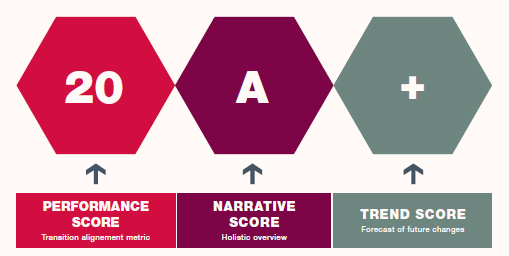 ACT methodologies assess how a company decarbonisation operations and strategy align with its individual decarbonisation pathway and the relevant sector’s low-carbon trajectory.
ACT methodologies assess how a company decarbonisation operations and strategy align with its individual decarbonisation pathway and the relevant sector’s low-carbon trajectory. Whenever possible, ACT uses the other initiatives as inputs, in order to be complementary. For example, in the ACT Transport Methodology, we use EU taxonomy to define what is a low carbon vehicle. From conception, ACT has learned from and aligned with a wider set of standards. The ACT Framework contains methodology implementation principles, which draw on GRI, IIRC, SASB, Arista 3.0, and the ISO 14064-1 and GHG Protocol principles. Many of the ACT indicators capture information required or recommended to be reported in the CDP, GRI, SASB and Taskforce on Climate-related Financial Disclosure (TCFD) frameworks. In particular, the Management module of the ACT methodologies, which contains indicators on the company’s oversight of climate change issues, climate change oversight capability, low-carbon transition plan, climate change management incentives, and climate change scenario testing shows convergence with the disclosures recommended by the TCFD.
- Retail
- Electric Utilities
- Automobile Manufacturing
- Real Estate
- Property Development
- Construction
- Oil & Gas
- Cement
- Transport (passenger & freight, all modes)
ACT methodology developments
The Assessing low-Carbon Transition (ACT) sectoral methodologies are developed in accordance with the ACT Framework and the ACT sector methodologies development guidance. All ACT methodologies are developed through a rigorous multi-stakeholder process, which includes a public consultation. ACT sectoral methodologies include rational, limitations, hypothesis regarding data quality, scenarios used, sector boundaries, conversion factors, etc.
To ensure the sector methodology accurately represents activities and challenges of the sector today in transitioning to a low-carbon economy a multi stakeholder working group, called Technical Working Group, is set up. The ACT Secretariat invites representatives from companies from the relevant sector, trade associations, experts in the business sector, specialist consultants in environmental/climate issues, NGOs, environmental associations and consumer organisations, government agencies, international organisations, investors and academics.
- Scope and Boundaries (Emissions sources and activities covered)
- Sectoral decarbonisation Benchmarks/scenarios and roadmaps
- Low-carbon Technologies
- Metrics and Indicators
- Module and Indicator Weightings
Each methodology is road-tested with a number of companies in the sector to identify how well the methodology works in practice and any areas that need amending or improving.
All companies in the TWG are welcome to join the company roadtests and benefit from a free ACT assessment using the newly developed sector methodology. By doing so they receive an ACT assessment report and rating that remain confidential (shared with the ACT Initiative) unless the company want to publish it.
